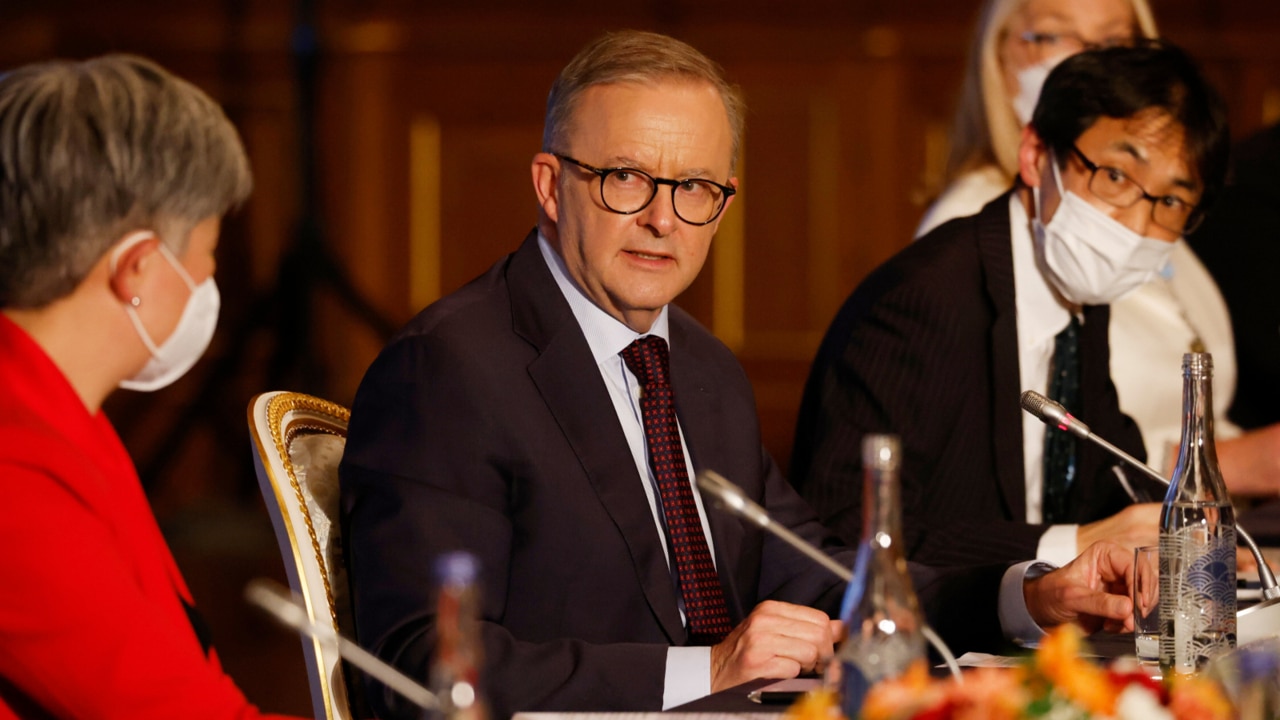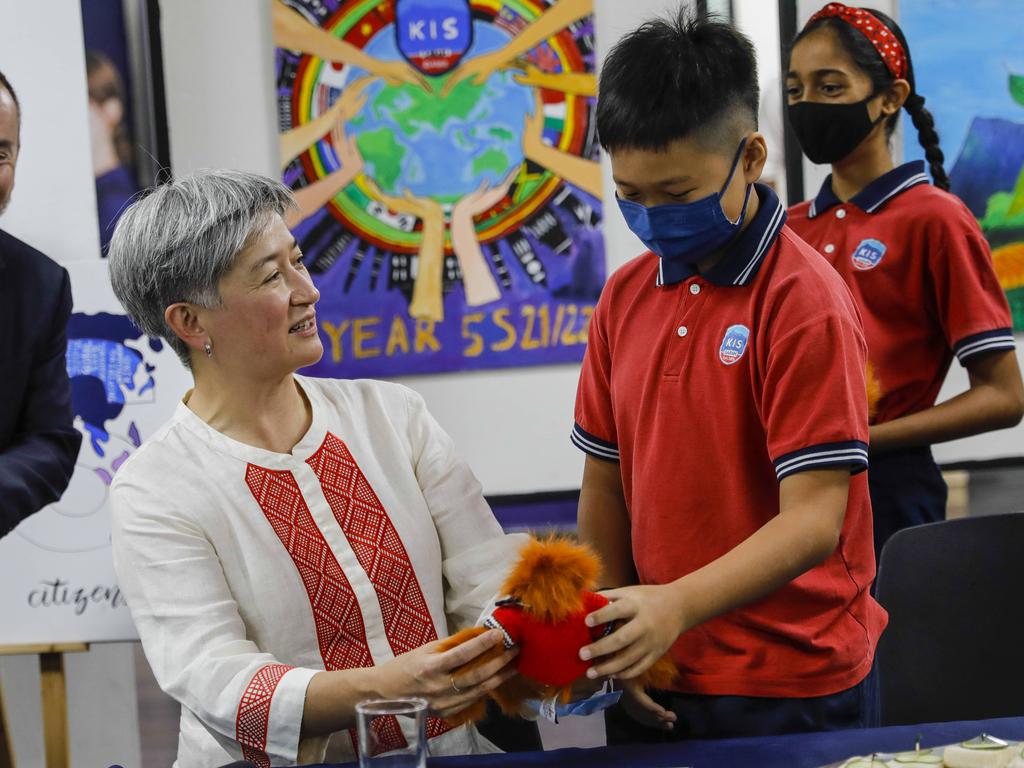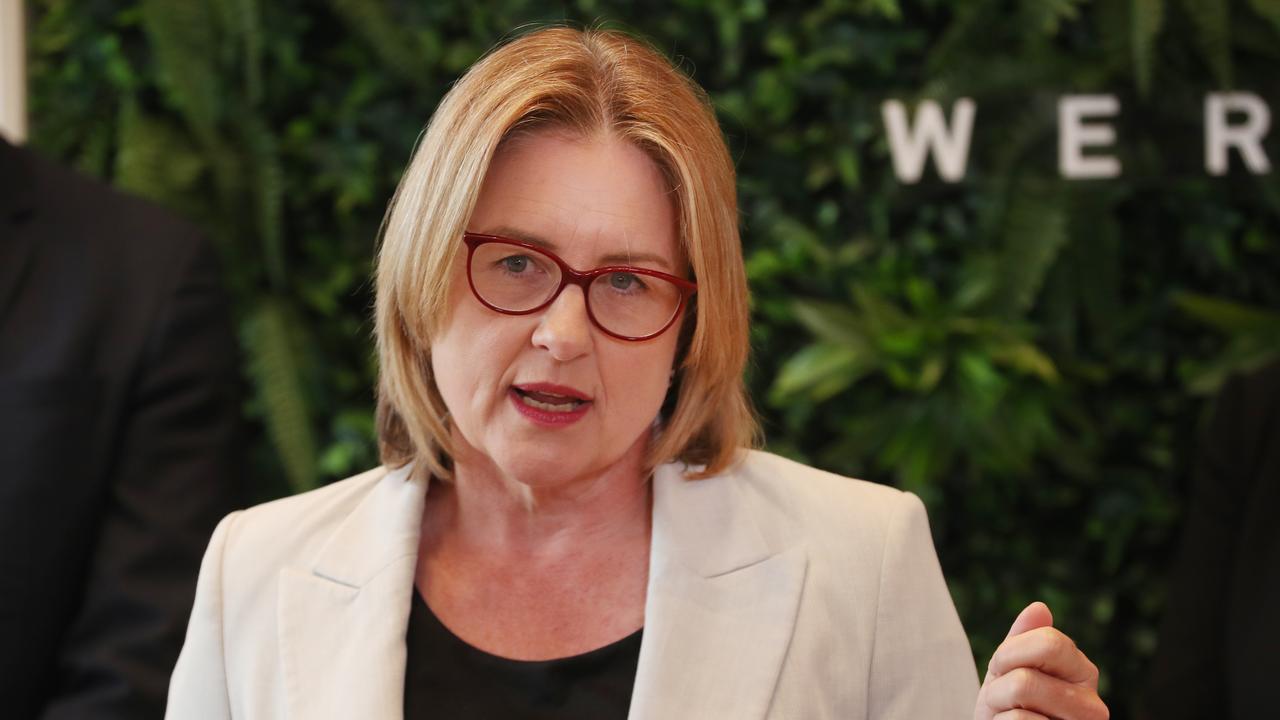Signs of a thaw in relations as Beijing warms to G20 meeting with Penny Wong
High level negotiations are underway for what would be a groundbreaking meeting between foreign ministers this week.

High-level negotiations are under way between Beijing and Canberra for what would be a groundbreaking meeting between their foreign ministers in Bali this week.
Beijing recently dismissed a formal request by Trade Minister Don Farrell to meet his counterpart on the sidelines of a World Trade Organisation meeting in Geneva.
Following that rebuff, no formal request for a meeting has been made by Foreign Minister Penny Wong to meet her counterpart, Wang Yi, on the sidelines of the G20 foreign ministers’ meeting in Bali, which starts on Thursday. But Canberra has clearly indicated its openness to talk.
“Australian government ministers remain open to engagement with Chinese counterparts,” a spokeswoman for Senator Wong told The Australian.
In a promising signal – and another step in the complicated diplomatic dance the two countries are engaged in – Australia’s ambassador in China, Graham Fletcher, met Chinese Vice-Minister of Foreign Affairs Xie Feng last Thursday.
That meeting in China’s foreign ministry in Beijing came after years of refusals by the Xi administration to meet Australia’s top envoy in China as the bilateral relationship imploded.
“Requests to meet at the vice-minister level in the foreign ministry have been routinely declined despite the relatively good access that China has in the Australian system,” said Richard Maude, a senior official in the Department of Foreign Affairs and Trade during the Turnbull government.
“It’s important. It’s another signal, another step on the journey,” said Mr Maude, executive director of policy at Asia Society Australia.
Not all recent signals have been as positive.
Communist Party mouthpiece China Daily last week said Prime Minister Anthony Albanese was “ill-informed” and had a “poor grasp of political realities” after he drew a parallel between Russia’s invasion of Ukraine and Beijing’s threats to wage war on Taiwan.
Beijing’s defence ministry separately warned that Australia would “bear the consequences” of any military accident between Chinese and Australian forces operating in disputed areas in the South China Sea.
After confirming that Mr Wang would attend the G20 summit, a Chinese foreign ministry spokesman indicated an openness to meet Senator Wong in Bali.
“As usual, on the sidelines of the G20 foreign ministers’ meeting, State Councillor and Foreign Minister Wang Yi will have a number of bilateral meetings,” said Chinese foreign ministry spokesman Zhao Lijian.
“As for the meeting between Chinese and Australian foreign ministers you asked about, I have nothing to release.”

James Laurenceson, director of the Australia-China Relations Institute, said it was unclear if the meeting would go ahead.
“We had the meeting of the defence ministers but then that wasn’t followed up with the trade ministers, which frankly shouldn’t have been hard,” Professor Laurenceson said.
“This is an opportunity for Beijing to send a clear signal that it is interested in talking. And if it doesn’t send that signal then I don’t see how Australia can interpret it in any other way than as Beijing not being interested in talking.”
Defence Minister Richard Marles met his Chinese counterpart at a security and defence forum in Singapore last month.
It was the first time ministers from the two countries had meet in person since Mr Wang meet former foreign minister Marise Payne in November 2019 on the sidelines of an ASEAN summit in Bangkok.
Justin Bassi, who was chief of staff to Senator Payne, said a meeting “without preconditions” would be positive.
“But it’s not just Australia who would benefit from dialogue,” said Mr Bassi, the executive director of the Australian Strategic Policy Institute. “The best way for China to get a more positive public discourse in Australia is by dropping the bad behaviour, which includes its economic coercion, arbitrary detention as well as refusal to meet and discuss differences,” he said.
A Lowy poll last week found that Australians’ trust in China had plummeted to just 12 per cent, down from 52 per cent in 2018.







